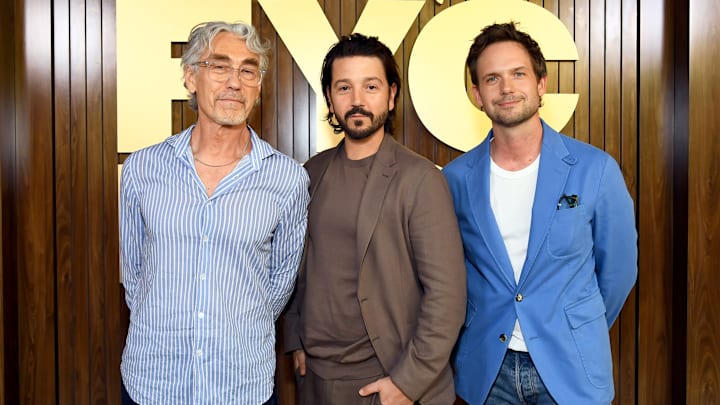Tony Gilroy is not your typical Lucasfilm showrunner. While others wax nostalgic or dance around fan expectations, Gilroy almost speaks with candor and just enough edge to make headlines. In a new interview with Empire (via Jedi News), Gilroy steps beyond Andor to weigh in on Star Wars projects both theatrical and serialized.
His candid takes offer insight into the current and future state of the galaxy’s storytelling.
When The Mandalorian debuted with the Disney+ platform on November 12, 2019, Jon Favreau and Dave Filoni, via Din Djarin and Grogu, changed everything we knew about the galaxy far, far away. Suddenly, there was a small-screen component (that worked really, really well) in a franchise that had, to date, largely relied on theatrical releases and comics.
Gilroy previously credited it for giving Lucasfilm new room to breathe, saying, “No Baby Yoda, no Andor,” in a past ComicBookMovie interview, pointing out that the show’s success paved the way for all the projects he discussed in the Empire sit down.
The Mandalorian’s space-Western sensibility – an affinity of Filoni’s – and focus on character-driven tales are unabashed and unapologetic. While others might try to please every type of fan, this series thrives by knowing exactly who it’s for and what it wants to be. This confidence opened the door for content like Andor.
On Skeleton Crew
Gilroy discussed the Goonies-inspired Jude Law series with genuine enthusiasm, sharing, “I watched some of Skeleton Crew, which I thought was really, really cool. I like how committed it is to its tone, and it seems really well done.”
That admiration for tonal commitment echoes his praise of Mando’s cohesive storytelling.
On Rogue One
Gilroy’s connection to Rogue One runs deep. It’s where his Star Wars career began, and where the idea for Andor was ignited. Revisiting the film, though, comes with emotional weight.
He told Empire, “I’ll probably watch Rogue One this weekend, tiptoe through it and just see how it feels. I’ve been very leery of doing that. I don’t know why, everybody else has done it.”
To be fair, “everyone else” wasn’t tasked with telling the stories that converged in the hard-hitting film. For Gilroy, it represents the moment he stepped into a galaxy already in motion and helped steer it somewhere completely new.
On Dawn of the Jedi
James Mangold’s upcoming Dawn of the Jedi film is set roughly 25,000 years before A New Hope, making it the furthest back any Star Wars project has gone in canon. For Gilroy, that creative distance is a gift.
“They’re going way back… That’s kind of interesting, because it’s free,” he told Empire. Free from Skywalker baggage, legacy characters, or predetermined plotlines, a story this ancient offers total narrative freedom.
Gilroy’s praise for tonal consistency (Mando, Skeleton Crew) and creative boldness (Dawn of the Jedi) echoes his philosophy behind Andor. His reverent, yet somewhat guarded, relationship with Rogue One also speaks volumes about the respect he has for the Star Wars franchise as a whole.
Star Wars is sprawling, but Gilroy’s message is simple: know your tone, own your story, and don’t fear risks. In a franchise often bogged down by expectations, Gilroy’s voice is a rare and necessary one. As Andor proved, the galaxy can be grounded, grown-up, and still wildly compelling. That is, if the storytellers are brave enough.
